Periodontal Disease
Is your mouth making you unwell?
Almost invisible in its earliest stages, there is a common chronic disease affecting our mouth that might be affecting other parts of our body too.
Periodontal disease.
Periodontal diseases are a group of inflammatory diseases which affect the gums and jawbone, the structures which surround and support our teeth.
Periodontal disease usually causes no pain or discomfort, you may not even realise you have it until the disease process is already very advanced.
Periodontal disease is associated with multiple general health conditions like diabetes and heart and lung diseases. The list of general health conditions likely affected by the health of our gums continues to grow each year.
Screening for periodontal disease takes place each time your teeth are examined, either during your initial comprehensive examination or every time you attend your Active Maintenance appointment.
Successfully managing periodontal disease involves an ongoing partnership between you and your dental professional. Working together, a plan which meets your individual needs will be formulated to manage your periodontal disease and help to keep you and your teeth healthy for life.
Periodontal Disease FAQs
Below are some of the frequently asked questions we receive regarding management of periodontal disease
If you have any other questions please contact our friendly team.
Periodontal diseases are a group of inflammatory diseases which affect the gums and jawbone, the structures which surround and support our teeth.
Every day, oral biofilm (plaque) forms on and around our teeth and gums. It is the collection of this soft, sticky, bacteria infested film at the junction between tooth and gum and our bodies response to the continuous presence of this bacteria which results in gum disease.
The most common types of periodontal disease are gingivitis and periodontitis.
The mildest form of periodontal disease is called gingivitis. It is caused by our bodies attempt at self-defense against the bacteria present in oral biofilm. This is known as an inflammatory reaction.
Gingivitis results in inflamed (red, swollen) gum tissues which may bleed easily when eating, brushing or flossing. Gingivitis is usually readily reversible with a thorough professional scale and clean and a change in oral hygiene techniques which reduces or eliminates the accumulation of harmful bacteria around the teeth and gums.
Periodontal diseases usually cause no pain or discomfort, you may not even realize you have an issue until the disease process is already very advanced.
If gingivitis is left untreated it can progress to periodontitis. In periodontitis, long term, chronically inflamed gum tissues cause destruction of the structures which support our teeth (gums, bone, periodontal ligament) and may affect other parts of our body as well.
Damage to these supporting structures is permanent.
If periodontitis is not treated, it will progress and may result in loose teeth, acute episodes of pain and infection, changes in appearance and the way the teeth bite together and eventually tooth loss.
Successfully managing periodontitis involves an ongoing partnership between you and your dental professional. Working together, a plan which meets your individual needs will be formulated to manage your periodontitis and help to keep you and your teeth healthy for life.
Periodontal diseases are caused by the bacteria in oral biofilm (plaque), but various systemic diseases such as diabetes and harmful habits like smoking may make a person more susceptible to disease progression. Genetic predisposition is a major risk factor for developing periodontal diseases. If you have a family history of gum disease, your gum health should be monitored even more closely.
Bleeding gums, wobbly teeth or a bad taste or smell from your mouth.
Experiencing these symptoms more than likely indicates that your mouth is affected by periodontal or ‘gum disease’.
These symptoms are not always present or noticeable. Periodontal diseases usually cause no pain or discomfort, it’s not uncommon to not realize you have an issue until the disease process is already very advanced.
During your periodic dental examination or Active Maintenance appointment, your Dentist, Dental Hygienist or Oral Health Therapist will complete a ‘periodontal examination’ or assessment of your gum tissues. Detecting periodontal diseases without completing this thorough assessment is impossible for dental professionals.
A thorough periodontal assessment involves:
- Taking various measurements around each tooth in the mouth including the ‘pocket’ or space between the tooth and gum. These measurements are taken using a special measuring instrument called a periodontal probe. These measurements help to determine if periodontal disease is present and how far advanced it has become.
- Detecting areas of ‘bleeding on probing’ or bleeding which occurs as a result of light pressure.
- Recording the presence or absence of pus.
- Determining furcation involvement (loss of bone support below the area where a tooth divides into multiple roots)
- Recording the degree of mobility or how ‘loose’ teeth have become.
- Assessing areas of plaque and calculus (tartar) accumulation and where home care improvements could be of benefit.
- Investigating the myriad of lifestyle and general health factors which can act as modifying or contributing factors towards a persons likelihood to experience periodontal disease.
Periodontal diseases are actual diseases. They should be treated like any other disease affecting our body. Treatment involves a multi-faceted approach.
The destruction of the structures surrounding and supporting our teeth caused by periodontitis is irreversible. From a tooth perspective, the goal of treatment of periodontitis is to stabilize the process and prevent or limit further loss of these supporting structures over time.
From a whole-body perspective, it is important to treat periodontal diseases to limit the impact chronic inflammation and infection may have on our general health.
Treatment of periodontal diseases involves physically removing the bacteria in oral biofilm (plaque) and rough, hard deposits calculus from on and around the teeth and gums. This is accomplished by your dental professional completing a professional scale and clean. When treating periodontal disease, deep cleaning may be called debridement.
Treatment will also include:
Learning new or refining existing oral hygiene techniques. Daily disruption of oral biofilm via a toothbrush and interdental cleaning is essential in successfully managing periodontal diseases. Your Dentist, Oral Health Therapist or Dental Hygienist will coach you in techniques which target your individual needs.
Modifying harmful habits like smoking and managing general health conditions which may directly or indirectly affect the health of your gums can also play an essential role in successfully managing periodontal diseases. Your dental professional may liaise with your team of medical professionals to help achieve the best possible result for your dental health.
Treatment of periodontal disease is often completed by your Oral Health Therapist or Dental Hygienist. Referral to a Periodontist, a dentist who specializes in the management of periodontal diseases, is sometimes required.
At Medland, our team of dental professionals work together to ensure you receive the very best of care.
The evolution of dentistry from the reactive, treatment-focused care of the past to the modern prevention focus of today, has seen Medland Dental evolve too. Today, Medland employs more prevention-focused practitioners than treatment-focused practitioners.
Those prevention-focused practitioners are Dental Hygienists and Oral Health Therapists.
A Dental Hygienist or Oral Health Therapist is a tertiary trained, registered dental practitioner. Just like a Dentist, they are required to complete continual professional learning and ensure they practise dentistry in line with registration standards required by the Australian Health Practitioner Regulation Agency and Dental Board of Australia.
Oral Health Therapists complete a Bachelor degree focusing on preventive and basic restorative dentistry. A Dental Hygienist specialises solely in the delivery of preventive dental services.
Working as a team allows our Dentists, Dental Hygienists and Oral Health Therapists to deliver technically excellent care in all areas of dentistry whilst focusing on the particular area of dentistry in which they excel.
Your Medland Dentist will refer you to see one of our Dental Hygienists or Oral Health Therapists when you enter our Active Maintenance program or if you require management of periodontal disease.
Your dental hygienist uses specialised instruments to remove the plaque and calculus from your teeth without harming the teeth much like the instruments used when having a scale and clean. The major difference is that the plaque and calculus must also be removed from within the pockets of gum. To ensure you are comfortable whilst the plaque and calculus are completely removed from these pockets, the treatment is completed with the teeth and gums thoroughly anaesthetised. In mild to moderate cases this treatment usually takes two appointments with one side of your mouth being treated at each appointment. In moderate to severe cases, it might be necessary to complete the treatment over four appointments with one quadrant being treated at each appointment.
At the initial periodontal treatment appointment your hygienist will carefully measure of the depth of the pockets surrounding each tooth at six points. It is these measurements that allow your hygienist to determine the severity of your periodontal disease, how many appointments will be required and will also serve as a point of comparison when assessing whether your periodontal disease has stabilised or progressed at subsequent reviews. These measurements will be repeated after your first course of treatment to assess your response to the periodontal treatment.
You may be referred to a specialist Periodontist as part of your treatment. This may be due to the severity of your periodontal disease, or if you are more susceptible to severe disease due to a family history of gum disease or due to medical conditions. Medland has a trusted network of specialist periodontists who work closely with the Medland Dentists, Hygienists and Oral Health Therapists to ensure you are well cared for during your treatment. Once your gum health is stable your care will then be shared by both your periodontist and your Medland Hygienist/Oral Health Therapist.
Each of our Hygienists and Oral Health Therapists are highly trained, skilled clinicians who prioritise the health and well-being of our patients.
Staying at the forefront of Brisbane’s dental industry, we are committed to utilising the latest technology and techniques to ensure that our patients can be proud of their healthy, beautiful smile.
If you have concerns about your smile or dental health and would like to learn more about treatment options that are available to you, please contact us on 07 3426 5777 or fill out the contact form and we’ll do everything we can to help.
Our welcoming and stylish dental practice is located at 66 Lambton St, Annerley, Brisbane QLD, Australia.
Providing a central and accessible location catering to patients Brisbane wide.
Our staff are passionate about ensuring every patient leaves Medland with a smile, and with full confidence they are receiving the best dental care in Brisbane.
On-site laboratory
Care for anxious patients
Experienced Practitioners
60+ years history
#iprefermedland Read more about the Medland philosophy.


